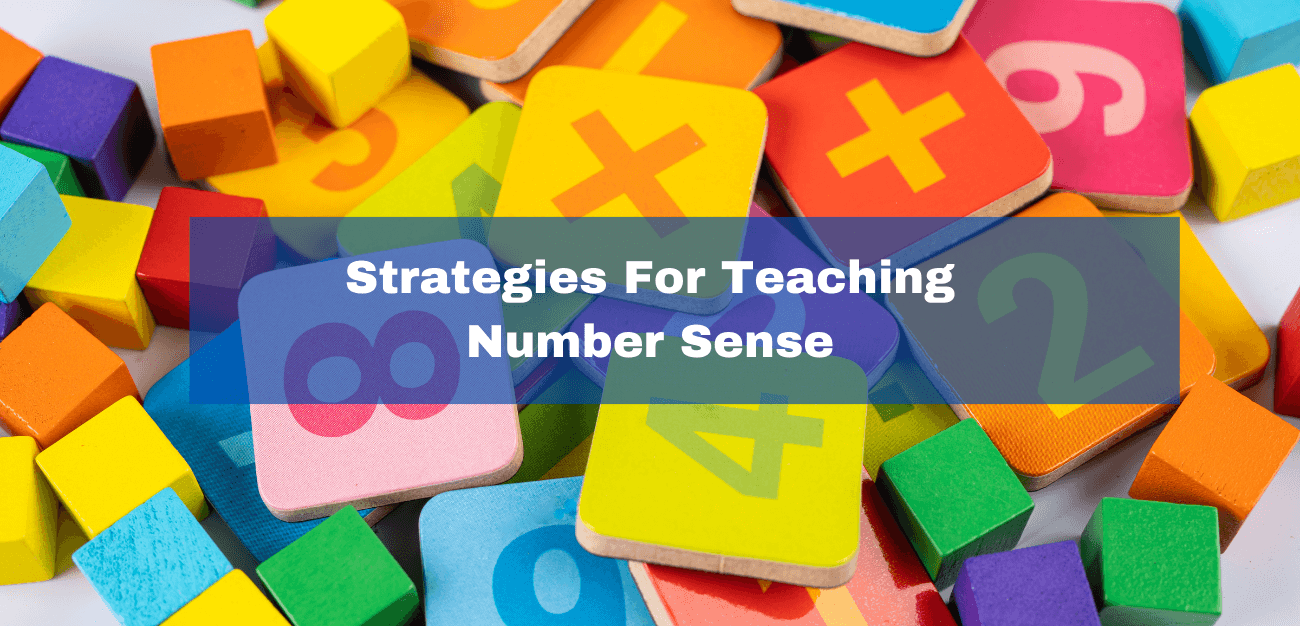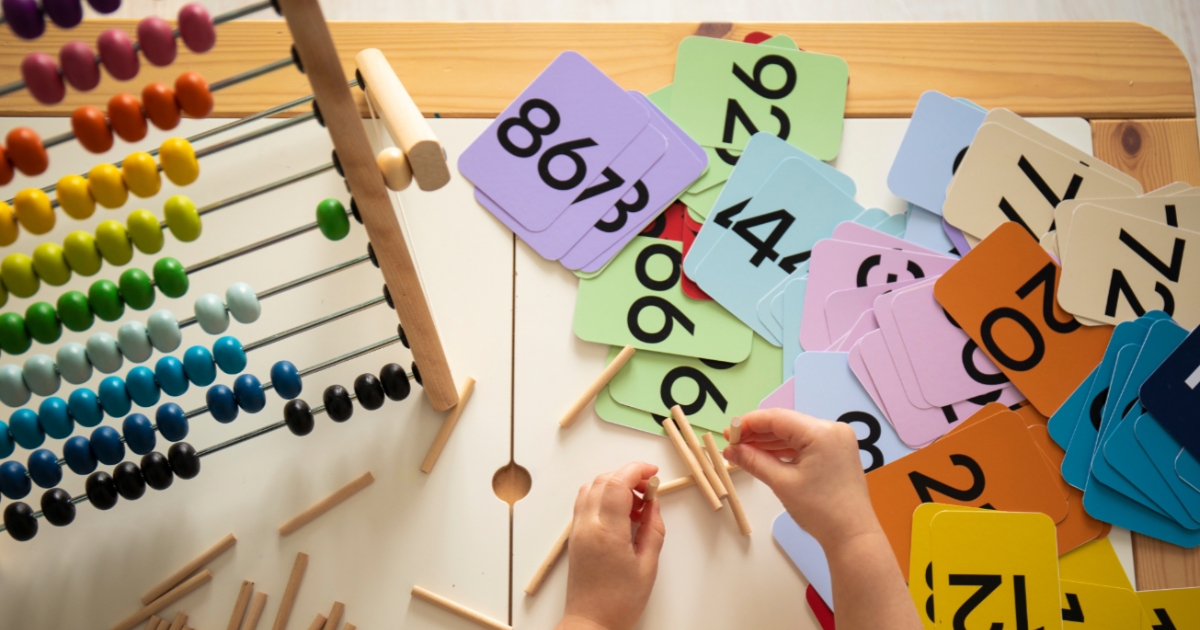Teaching young children number sense is essential when it comes to helping them develop a strong foundation in math. As an adult, you might take for granted the years of practice and repetition that enabled your current mastery of numbers – but for kids just starting out on their journey towards math literacy, a solid understanding of ‘number sense’ techniques can provide major breakthroughs. After all, knowing how to compare quantities, recognize patterns and make predictions is required before we can even begin problem-solving! In this blog post, we’ll be exploring three key strategies for getting your little ones on the fast track toward becoming confident mathematicians and offer some guidance for math tutoring choices if needed.
Everyday Life
Children are exposed to many mathematical concepts in their everyday life from an early age without even realizing it. From picking the biggest piece of cake at a birthday party to understanding the basis of addition when they ask for one more story at bedtime, kids grasp number sense and form concrete understandings of mathematical ideas.
To help them make those connections even deeper, parents and caregivers can provide engaging activities and incorporate creative methods such as using manipulatives or games. That way, number sense will become second nature to young kids so that they will have solid foundations upon which more complex mathematics can be built by the time they enter school.
Look For Math Around You
One of the best ways to help children learn number sense is by sharing examples of how numbers appear in everyday life and activities. Through simple activities such as counting out snacks when packing lunch or comparing prices at the store, parents and teachers encourage students to see numbers as a practical tool rather than a number being some abstract concept or boring syllabus. Through your own examples, illustrating how number sense helps them make decisions and navigate life, you can create a connection that motivates your child and helps them understand why it’s so essential to have number sense. Once kids recognize number sense’s real-world relevance, they are far more open to learning about math.
Acknowledging children when they are applying mathematical concepts to their daily lives can be a great way to get them excited about math. Whether it’s as simple as counting or comparing sizes, kids can see how applicable it is in their world. If you notice your child solving problems with numbers, articulate that to them by saying something like, “You sure know a lot about numbers!” or “You’re comparing lengths. That’s amazing math!” Show kids that math is relevant and fun, and that alone will build up their self-confidence and help them view themselves as mathematicians.
Focus On The Process
Practicing counting is a cornerstone learning activity and can help kids learn one-to-one correspondence – or matching each object to the numbers being said. For optimal learning, allow kids to work independently. Give them large groups of objects and let them practice their counting skills in a self-guided environment. This helps build confidence while they are learning this important concept.
Working with addition and subtraction can be challenging for young children, but introducing math manipulatives can make the learning process easier. Manipulatives are concrete objects such as counting cubes or linking blocks that can help solve basic addition and subtraction problems. Allowing your child to explore and experiment with these objects provides a hands-on way to learn and understand mathematical concepts. Encouraging your child to discuss how they came up with their answers ties in language development and helps them strengthen their problem-solving skills – it also gives them an opportunity to vocalize their thought process so that they have a better understanding of what they’re doing.
Improving mathematics understanding also begins with double-checking answers. Asking children to double-check their work allows them to learn from their mistakes and is a valuable teaching tool in improving number sense. Having the chance to go over and spot mistakes on their own encourages mathematics comprehension in the long run, effectively arming them with problem-solving skills they will use throughout life. Finding their own errors gives children more confidence when learning mathematics, ultimately aiding their education and understanding of numbers.
Developing Math Practice
Starting young is essential to developing mathematics skills that can be used throughout life. Number sense is crucial in building skills, as it helps with understanding problems and problem-solving. Creating practice habits is also important to reinforcing mathematics experience, such as checking one’s work. Children need to be taught to ask themselves questions when interacting with the mathematics curriculum, which can help them learn and create a deeper understanding of mathematics.
Constructing viable arguments and critiquing the reasoning of others is a vital math practice for children to develop. This requires them to explain their math thinking and analyze strategies used by their peers. Such a process helps kids recognize that math problems are not just about getting the correct answer but understanding the procedures used in getting to that solution. Utilizing multiple approaches encourages flexible math problem-solving, allowing children to dig deeper into math concepts while also gaining more number sense. Ultimately, this demonstrates the power of math communication on learning and encourages critical thinking in math situations.
A Mathematical Journey
Having number sense is an essential component for children to be able to progress along their mathematical journey throughout school. Without number sense, or number and operations fluency, kids may struggle with basic math operations and numerical relationships that are expected of them as they move from one grade to the next. Further difficulty may be encountered when a child needs to form abstract math concepts using the number facts that number sense provides. If a child does not possess number sense, interventions should be conducted in order to help rectify this disadvantage for their longer-term progress in mathematics.
Math tutoring is one of the best ways to help children struggling with number sense. At Dropkick Math Academy, we include number sense as one of the four pillars of math, which all programs are designed around. Children will learn the fundamentals of mathematics, including number sense, and practice them in a fun and engaging way.
Our math tutoring programs are taught by certified Ontario teachers who understand the importance of children learning the root of mathematics. Number sense can be taught at home through our helpful tips above, but if your child is still struggling, it may be time to reach out to trained instructors who can identify where your child may be behind and help them catch up to their peers.
Learn more about our programs today and how they can help your child master number sense!





